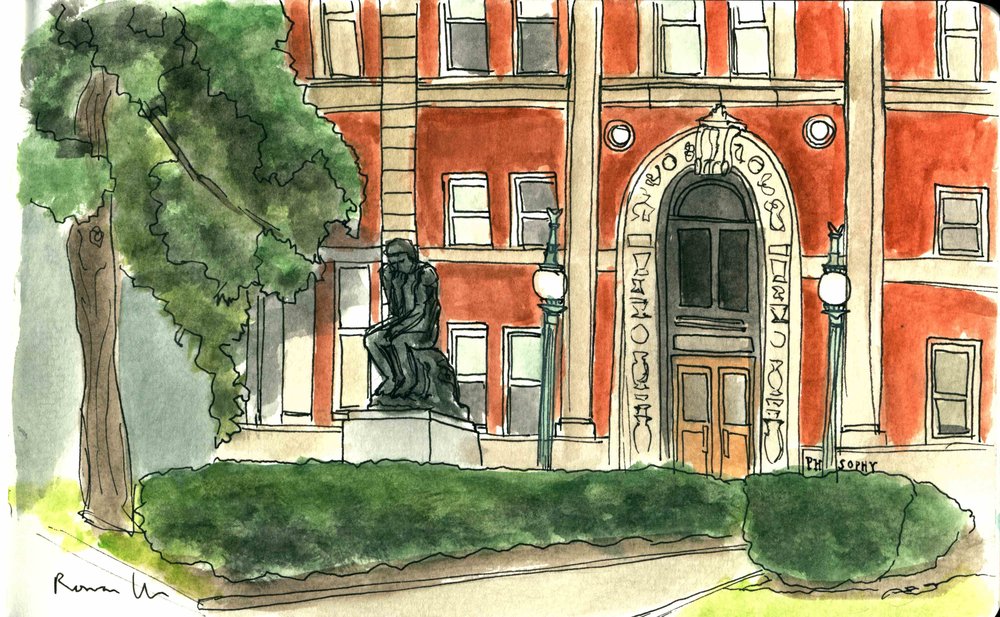by Caitlin Brady
On Monday night, Kim Kardashian was bound and robbed at gunpoint while alone in her residence in Paris during fashion week. Headlines have swirled: from a since-removed story about how her husband Kanye West felt “helpless” (People, by way of New York Magazine), to conspiracy theories, to the ever-sensitive NRA‘s sarcasm about French gun laws and a thinly-veiled assertion that Kim, a vocal gun control advocate, made her own bed with a dearth of firearms.
Among the jewelry stolen from Kardashian is a glittery Lorraine Shwartz ring from Kanye, valued at around four million dollars, a piece she displayed extensively on her Snapchat and Instagram. Andy Cohen pointed out the ring when he interviewed Kardashian at an Advertising Week event last week, and Kardashian shared an anecdote of how Kanye tricked her, telling her he’d bought a gift from Adidas, having just closed a lucrative deal with them. He then surprised Kim with the giant diamond ring, whose band interior was inscribed with “Adidas.” Kardashian coyly smiled about Kanye’s apparent love of literal humor and said, “Thanks Adidas.”
I was up late procrastinating on work when I saw the first headlines trickle in about the robbery; I closed my laptop, turned out the lights, and struggled to sleep. While I generally have sleep issues, I also felt a slow crush of fear for Kim’s safety mixed with fear for her family mixed with gratitude it wasn’t worse, and finally – isn’t the ring, and her own flashiness, to blame? Kim, beloved to me and many in part for her unapologetic flash, is jeopardizing her own safety. This idea is a dominant thread circulating the Internet today: Kim Kardashian asked for it. She wore her ring, and in return, asked for armed men to invade her room, tie her up, point a gun at her head, and take her property. At this point, I step back and feel the argument open into something much more precarious and strange, a troubling question of why, both in the United States and abroad, the line between admiring something and feeling entitled to possess it seems so awfully thin. Why is it quicker and more instinctive to characterize Kim as irresponsible, than it is to characterize burglars as predatory? Should we go about our lives each day, admire the sunrise, and pause to think, “Burglars will be burglars. How can I adapt to them?”
A ring like the one stolen from Kim is in itself an act of ostentation – it’s a declaration of love, pride, and sure, money – a damn big diamond not meant for hiding. It seems what the NRA, and many in various fashion circles are suggesting, is that Kim should have either beefed up her security or toned down her jewels. Yet this suggestion sidesteps the fact that Kim already travels with a solid entourage including bodyguards, as well as in private cars to shuffle her along a tight schedule of timed appearances. Most will agree she exists within a protected, elite bubble – when this bubble is penetrated however, Kim is at fault. Whether she allowed too much access, showed off too much, or was overconfident in said bubble, she extended an implicit invitation. Kim ought to have street smarts for a street so clogged with paparazzi and a random Euro-creep prankster lunging for her ass that she can barely walk down it.
It seems impossible and somewhat irresponsible to ignore femininity and female beauty in the furor currently (and often) surrounding Kim. I own Kim’s coffee table book Selfish; I actually can’t leave it on the coffee table because otherwise no one will speak to me, rather thumb through it with bemused distraction. Kim’s beauty and wealth are powerful, as is her comfort with them. People admire and resent her, and resent her without acknowledging if there’s the tiniest shred of admiration within that resentment. When Kim shows off her diamonds, the criticism intrinsically extends to what else Kim shows off in her sheer jumpsuits, bra-less blouses, skin-tight jeans – the unapologetic, intentional proportions of nakedness that hallmark her personal style. Our desire to criticize Kim for showing off seems more than anything a continued puritanical befuddlement with a woman who’s not only secure in power, but pleased to flaunt it, whether or not one believes her power to be traditionally wholesome or well earned. Kim has multiple powers we can choose to disparage: her enormous wealth? Her openness about sex and her body? Or perhaps it’s her power of having refused and survived social shame in the first place, capitalizing on a leaked sex tape to create one of the most successful shows to emerge from the detritus of early aughts reality T.V.?
With the jewelry thieves’ choice of such a high-profile target, and at a time when Paris is crawling with additional coverage, I considered the theft of the Mona Lisa from the Louvre in 1911. An Italian handyman named Vincenzo Peruggia, who’d been hired to help the museum outfit glass for the paintings, picked up Leonardo da Vinci’s masterwork, hid it under his smock, and walked out of the building with the aid of an unwitting plumber, who loaned him a key when he saw him struggling with the back door. Vincenzo would go on to insist at trial that he chose the painting predominantly for its portability, and less for its worth – perhaps the thieves who robbed Kardashian fled on bicycles likewise for portability? Just to be French? I have no idea about the bikes, but I will argue that Vincenzo picked the Mona Lisa on at least one level because he found the painting beautiful, and wanted to stare at La Jaconde a bit longer. I also happen to have a copy of the Mona Lisa in my apartment, her face printed on an ashtray. It was a gift from my mom, who felt that putting cigarettes out on the Mona Lisa‘s face was the peak of absurdity.
The enticements of beauty, power, and wealth are clear, but the larger question still looms about the ways we frame Kim Kardashian, a beautiful, powerful, wealthy woman, as someone who’s been wronged. Anytime I want, I can see Kim’s picture; I can watch a tutorial of how she applies her makeup or chooses an outfit. I can scroll along her face, her house, her closet, her naked body.
But can I picture her crying, tied up in a bathtub, as several men rifle through her belongings, point a gun to her head, and tell her to shut up? Yes, I can. Any of us can.




